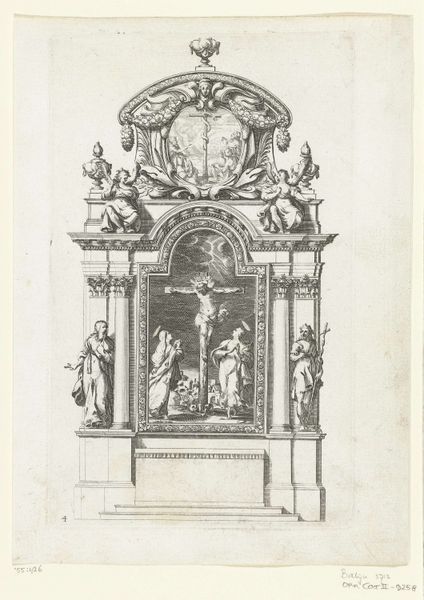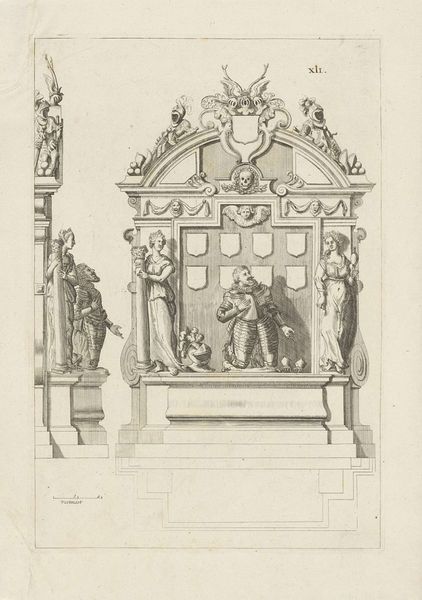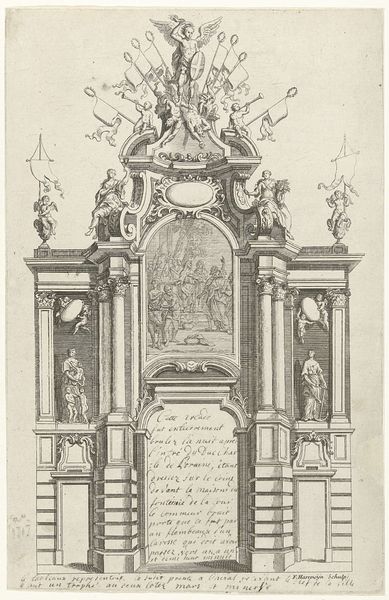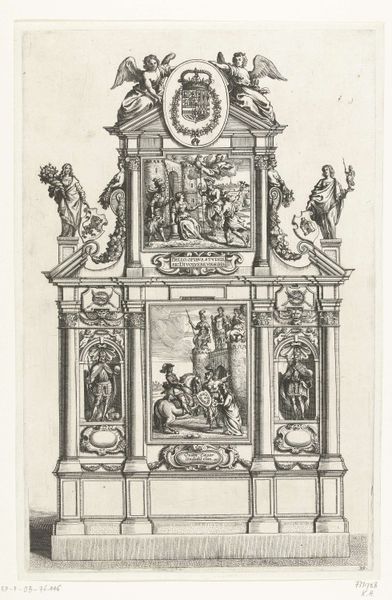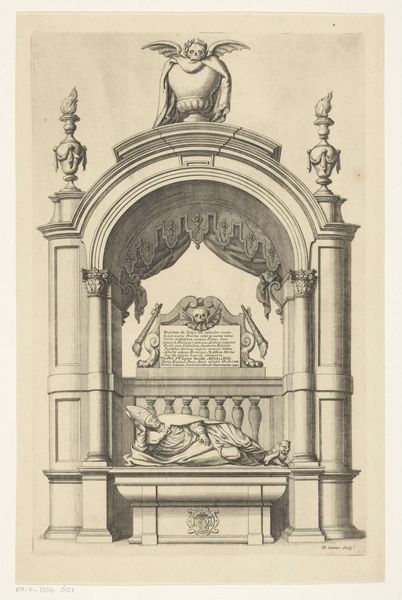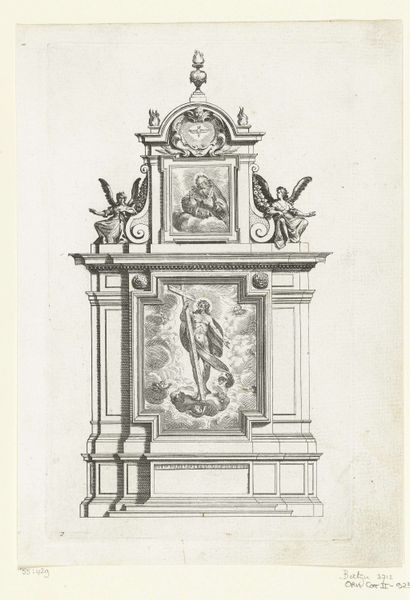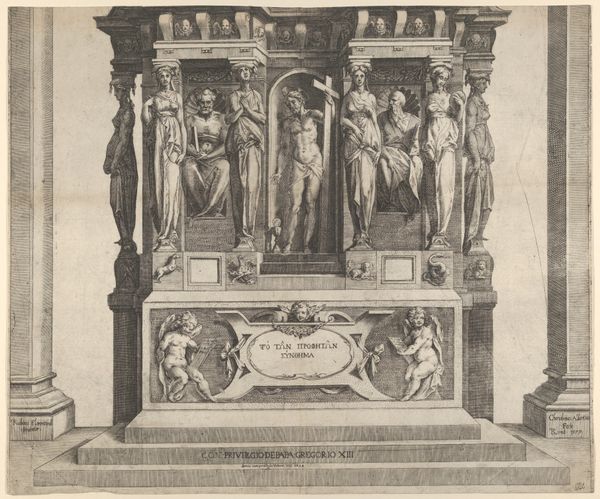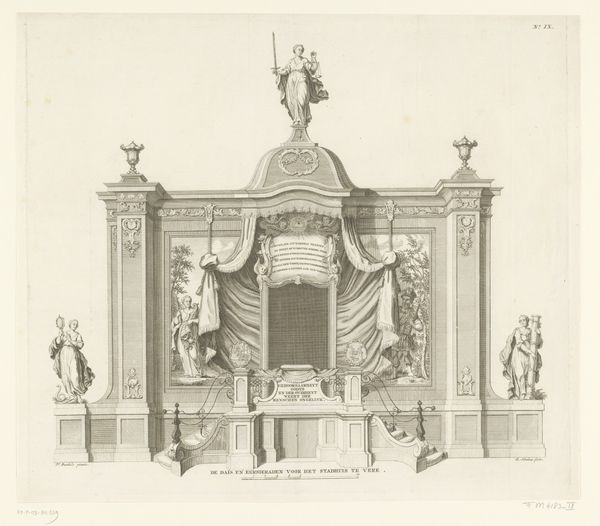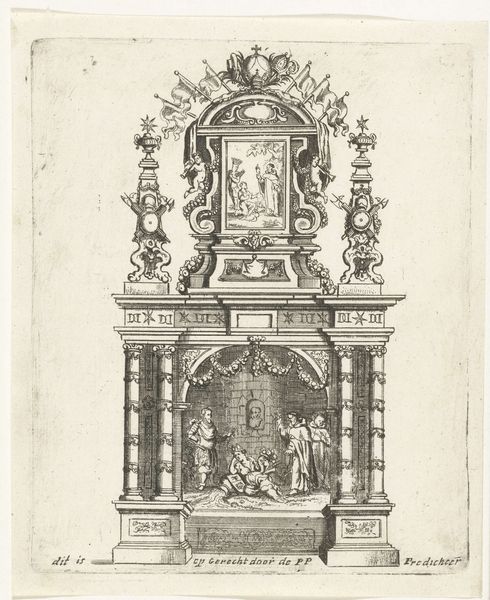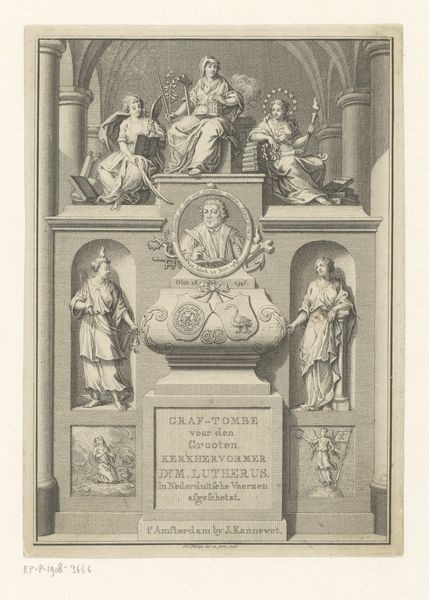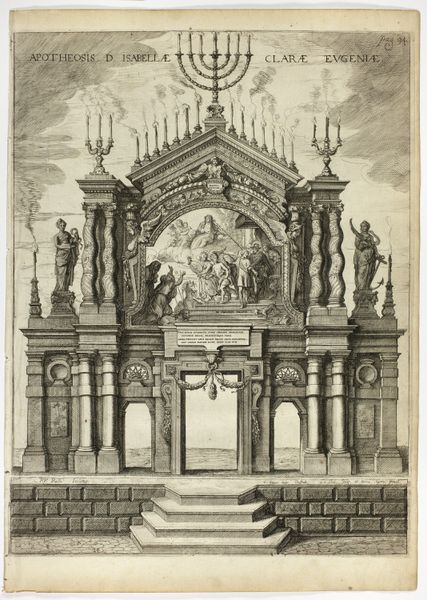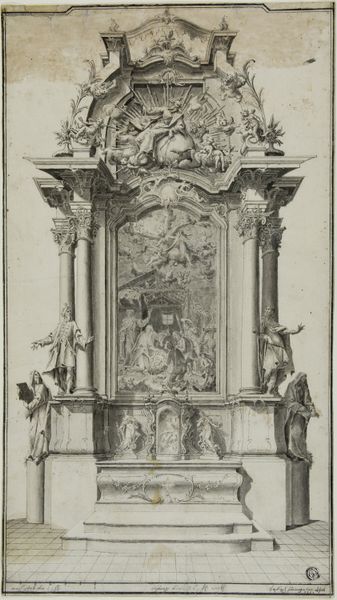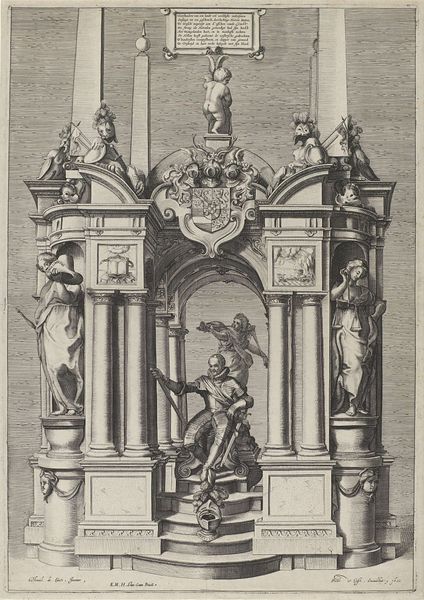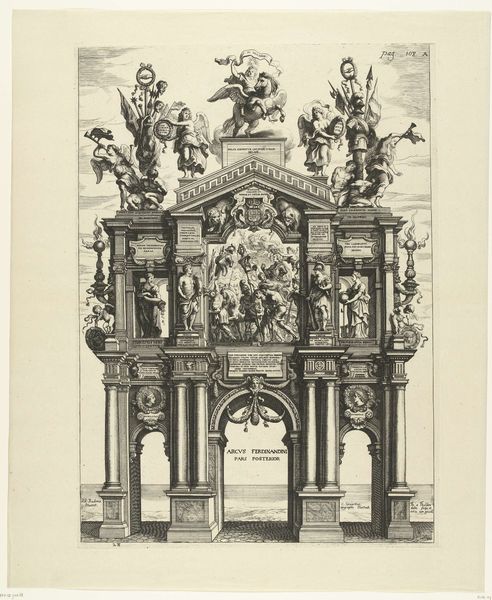
Graftombe voor Humbert-Guillaume de Precipiano, aartsbisschop van Mechelen before 1752
0:00
0:00
print, engraving, architecture
#
light pencil work
#
quirky sketch
#
baroque
#
mechanical pen drawing
# print
#
pen sketch
#
pencil sketch
#
old engraving style
#
classical-realism
#
figuration
#
form
#
personal sketchbook
#
pen-ink sketch
#
line
#
pen work
#
history-painting
#
storyboard and sketchbook work
#
engraving
#
architecture
Dimensions: height 390 mm, width 387 mm
Copyright: Rijks Museum: Open Domain
This print, made by David Coster around the early 18th century, depicts the tomb of Humbert-Guillaume de Precipiano, Archbishop of Mechelen. As an engraving, its primary material is the ink pressed onto paper, a process that allowed for the relatively quick production of images, making them accessible to a wider audience. The sharp lines and detailed renderings were achieved through skilled labor, using tools to meticulously carve lines into a metal plate that was then inked and printed. This painstaking process reflects a world where craft skills were highly valued, but also increasingly subject to the demands of mass production. The print aestheticizes death with the tomb of Humbert-Guillaume, while also testifying to the social hierarchies of the time. Religious power, political authority, and artistic production come together in this print, reminding us that images, no matter how small, are always embedded in complex social relations.
Comments
No comments
Be the first to comment and join the conversation on the ultimate creative platform.
